|
Genres, Themes, Actors, and Directors:
- Airplanes and Pilots
- Colin Clive Films
- Dorothy Arzner Films
- Infidelity
- Katharine Hepburn Films
- Strong Females
Review:
Despite its oddly masculine title, this early melodrama (based on a novel by Gilbert Frankau and directed by Dorothy Arzner) very much belongs to Lady Cynthia Darrington, the female protagonist played by Katharine Hepburn — who, in her second screen role, easily carries the film, exuding all the intelligence and strength required of her nonconformist character. It’s been noted by many that Owen (not the most charismatic or handsome of actors) seems like an unlikely romantic match for Hepburn, but I found it easy to believe that the sexually inexperienced Lady Cynthia might make such an unconventional choice:
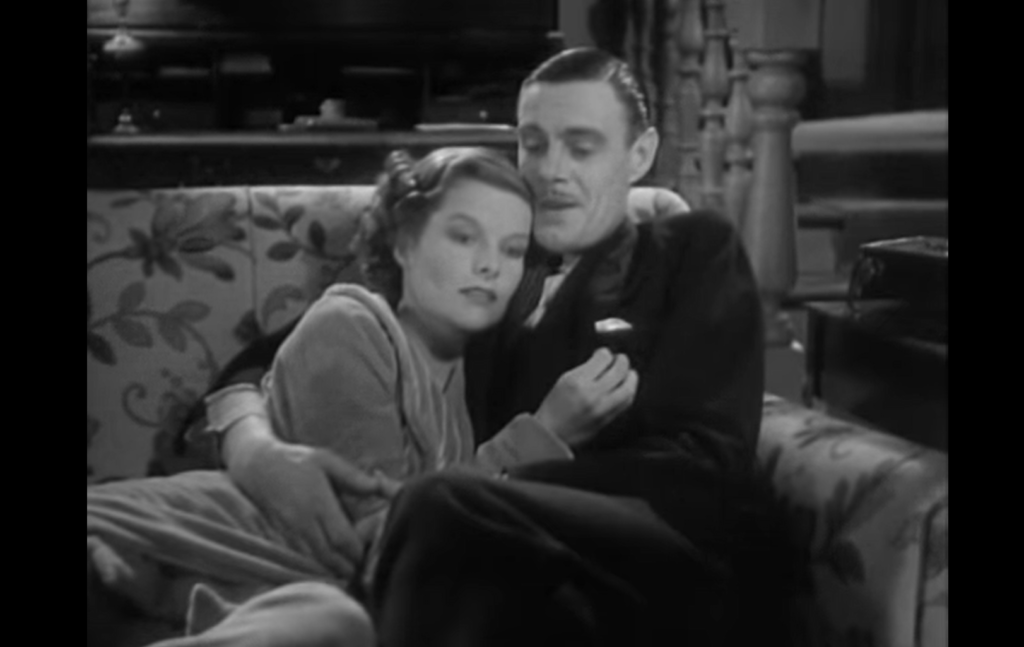
Less convincing is Clive’s sudden shift in allegiance from wholehearted devotion to his wife (a typically fluttery Billie Burke) to adulterous impulses. Of special note is the way in which Arzner manages to infuse Christopher Strong with quietly subversive material, ranging from Lady Cynthia’s mannish outfits and independent lifestyle to the fey demeanor of Ralph Forbes (who plays Clive’s daughter’s married love interest).
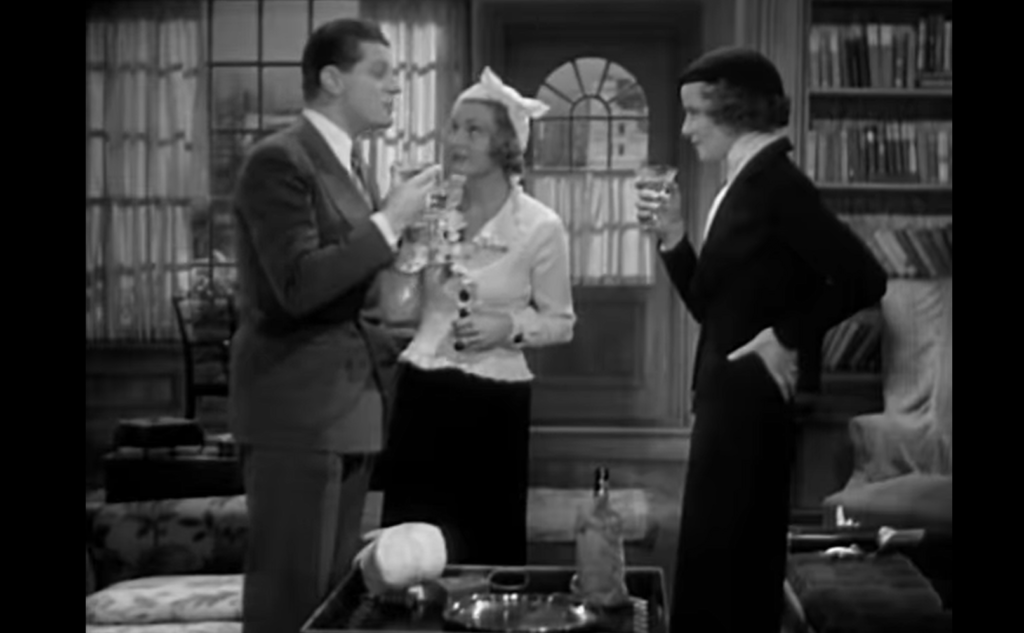
Unfortunately, moral strictures of the time mandated that Lady Cynthia “pay” for her crime of loving a married man (while Strong — naturally — gets off scot-free), thus leading to the film’s infamous tragic ending. As a narrative, Christopher Strong leaves much to be desired — but as a vehicle for both Hepburn and Arzner, it’s worth a one-time look.
Redeeming Qualities and Moments:
- Katharine Hepburn as Lady Cynthia
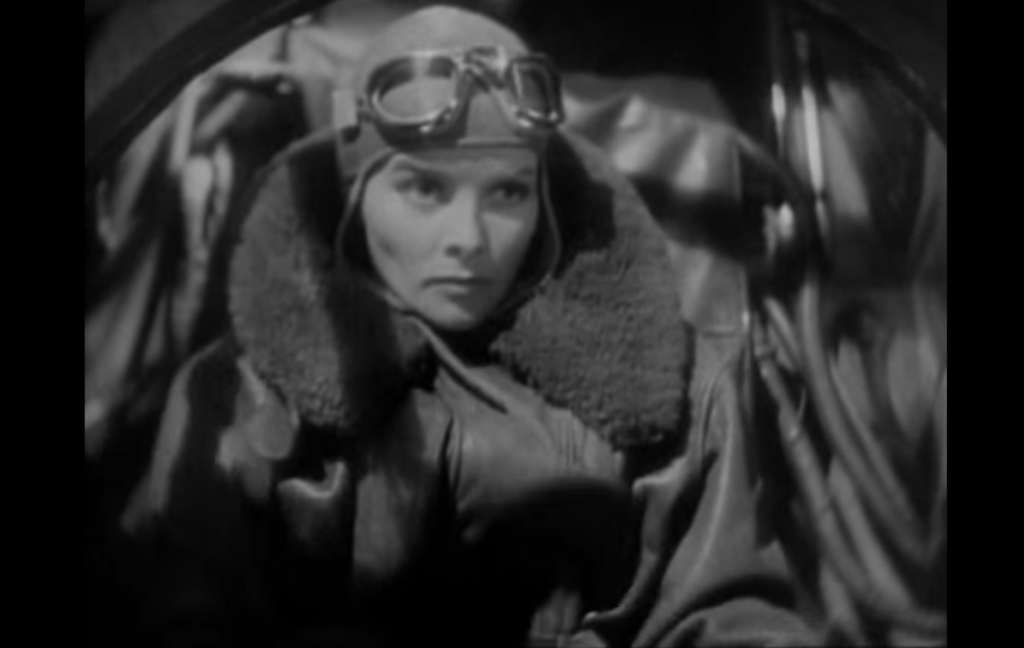
- Hepburn emerging in her infamous “moth” outfit
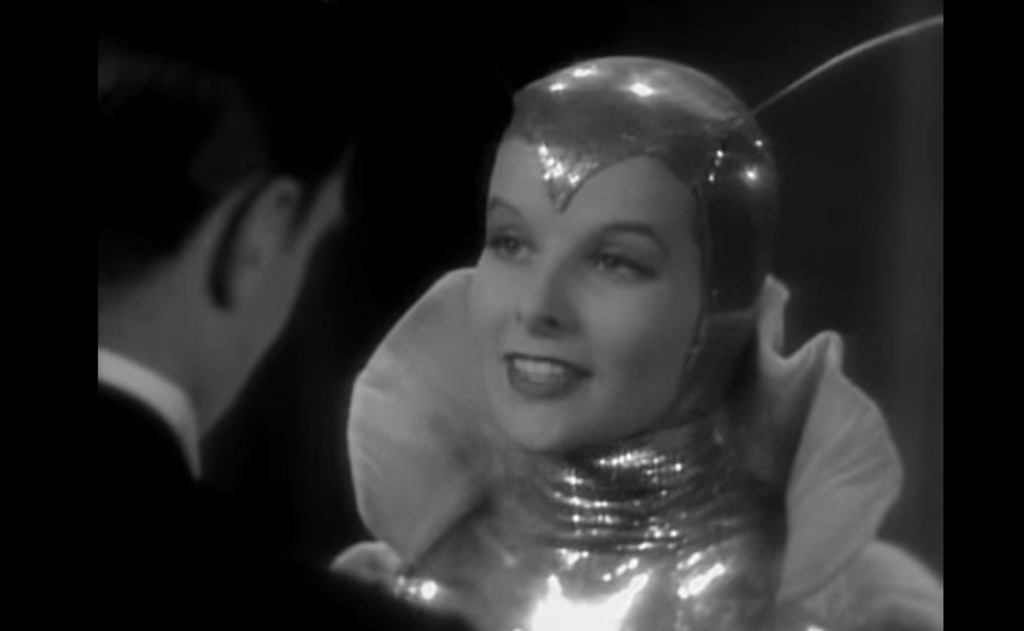
- Atmospheric cinematography
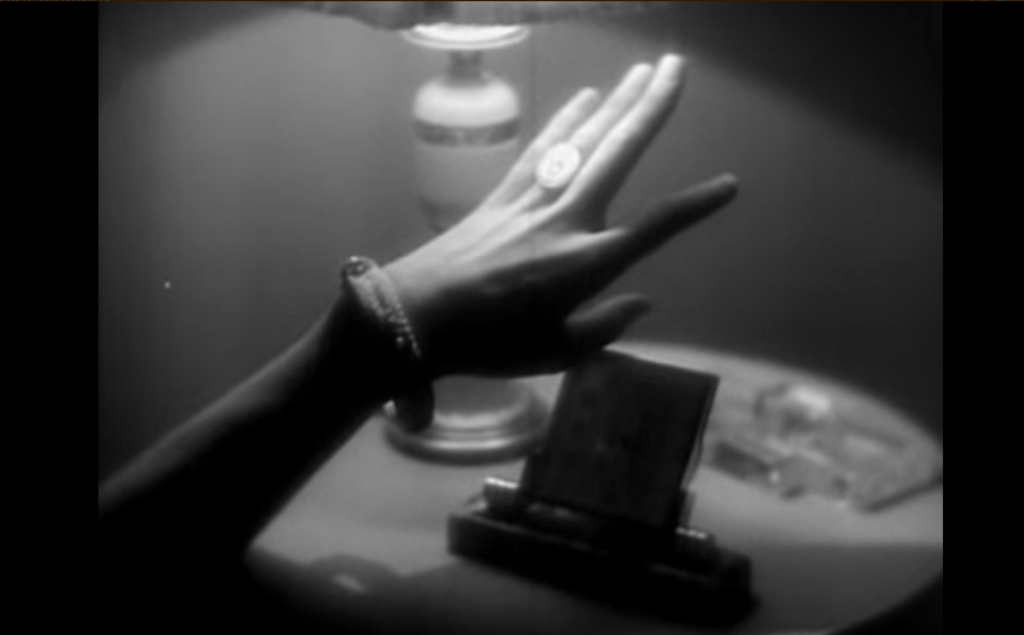
Must See?
No, though it’s worth a look for its historical significance as Hepburn’s second major role, and one of Arzner’s best-known films.
Links:
|
One thought on “Christopher Strong (1933)”
Not a must – since, as stated, it “leaves much to be desired.” Actually, for me, it leaves too much to be desired.
Someone with talent as obvious as director Arzner’s should have more often been handed better scripts during her career. (I’ll admit to being curious enough about her work to want to try to see everything she’s done; but that’s not meant as encouragement to all ffs to follow suit.)
Though it’s clear where Arzner’s sympathies mainly lie here, that’s not enough to distract one from the film’s soap opera snore of a storyline. As well, not only is the viewer often subjected to laughable dialogue (some of it…sheesh!), but also to Chandler – whose irritating, self-absorbed role (until, inexplicably, near film’s end) is little more than that of a nitwit (and a pampered one).
Seemingly no one is spared moments of outright embarrassment – not even Hepburn who, in an especially bizarre bit, raises her glass to Chandler and her somewhat dim lover to exclaim: “You’re marvelous, you two; you’ve always done exactly what you liked and not cared whom you’ve hurt. It’s all turned out splendidly. So here’s to you both again!” (!!!)
Arzner did manage to helm at least a few memorable films (i.e. ‘Craig’s Wife’, ‘Merrily We Go To Hell’) that had more-than-decent scripts aiming for dynamic storytelling. She did what she could with ‘CS’ – giving it a certain style, and highlighting Hepburn’s character’s often-admirable spirit – but the dog of a script barks throughout.